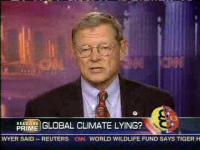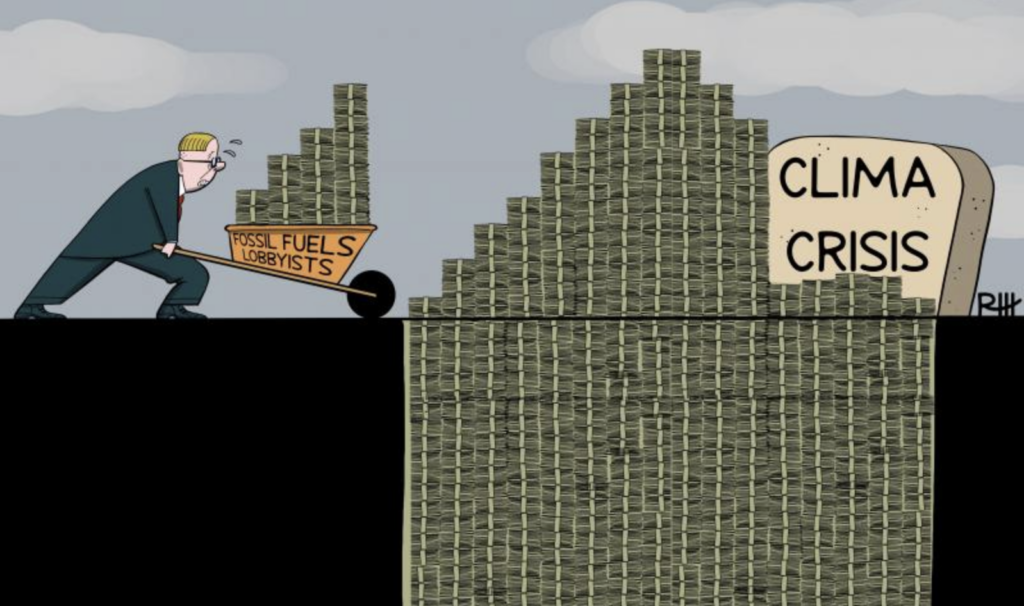James Inhofe, former chair of the Senate Committee on the Environment and Public Works and the leading Republican climate change denier spent more than his fair share of time last week interrupting and abusing former Vice-President Al Gore during a committee hearing.
Partisan politics aside, Inhofe has good reason to fight the climate change message. In the 2002 election cycle, Inhofe received more in donations from the oil and gas sector than any other Senator. According to the latest available election financing data, in the last five years Inhofe has received just over $3.4 million in donations from 20 industry sectors – almost $1 million (29%) is from the Energy/Natural Resources Sector and their respective PACS. The next closest sector is the financial/insurance/retail sector at $464,680 (13%).
Here is a list of the top industry contributors to Sen. Inhofe over the last 5 years:
1. Murray Energy (private coal company)
3. National Rural Electric Cooperative Association
4. Cummins Inc.
5. OGE Energy
Subscribe to our newsletter
Stay up to date with DeSmog news and alerts







